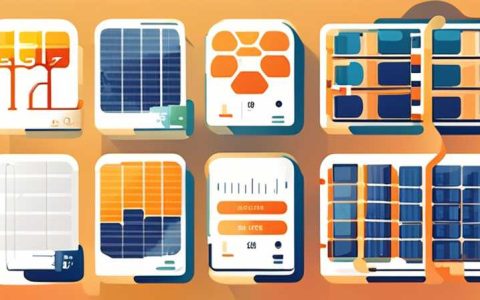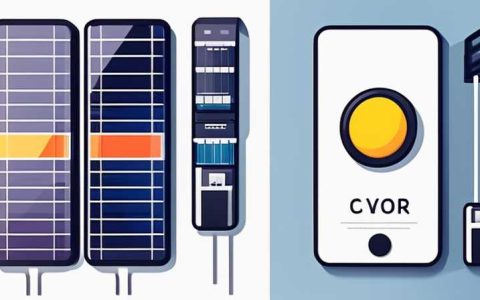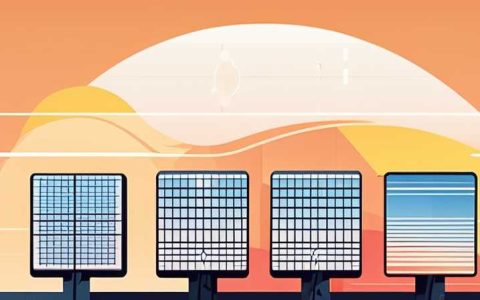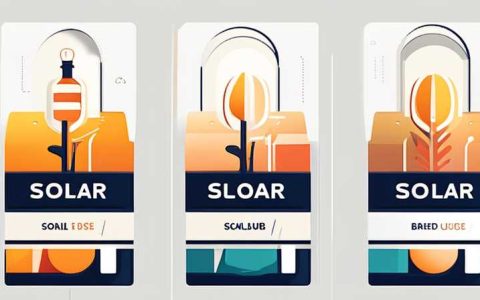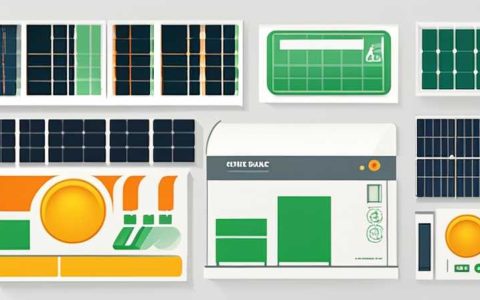
1. THE COSTS ASSOCIATED WITH BECOMING A SOLAR POWER AGENT
2. Initial Investment Requirements, Operational Expenses, Marketing and Promotion, Training and Certification
- The expenses linked with being a solar power agent vary significantly. 1. Initial investment can range from $5,000 to $25,000, depending on the business model and localization. This investment encompasses equipment, licensing, and overhead costs. 2. Ongoing operational costs typically fall between $1,000 and $5,000 monthly, covering salaries, utilities, insurance, and other necessities. 3. Marketing and promotional activities can add an additional $500 to $5,000 per month, depending on the selected strategies. 4. Training and certification may cost between $300 and $3,000, reflecting the need for compliant and knowledgeable agents. A detailed elaboration on initial investment provides insight into elements like licenses, registration fees, and potential equipment costs.
1. INITIAL INVESTMENT REQUIREMENTS
The foundational expenses associated with entering the solar power industry can be considerable, varying widely among agents based on specific objectives, geographical locations, and chosen business strategies. To clarify these figures, a breakdown of initial costs indicates several major avenues that demand financial commitment.
Licensing and Registration Fees
To operate legally, aspiring solar power agents must obtain the appropriate licenses and registrations. This may encompass state and local business licenses, industry-specific certifications, and bonding requirements essential for consumer protection. While costs can vary between jurisdictions, estimates suggest that initial licensing fees typically range from $500 to $2,000, depending on state mandates and the agent’s business model, particularly when it involves contracting or installing solar systems.
Equipment and Software Investments
Given the technology-driven nature of this field, agents need to invest in reliable equipment and cutting-edge software to streamline operations. Essential tools may include computers, photovoltaic software, CRM systems, and possibly drones for site assessments. The cumulative cost for setting up essential technology can range from $2,000 to $10,000, laying the groundwork for efficient project management, customer interaction, and design consultations. Investing in quality equipment is pivotal; it facilitates seamless operations, positioning agents to handle multiple projects simultaneously and enhance service quality.
2. OPERATIONAL EXPENSES
Sustaining a solar power agency incurs various ongoing operational expenses, crucial for enabling consistent service delivery and business growth. Understanding these costs aids agents in anticipating budgetary needs and maintaining financial stability in fluctuating markets.
Employee Salaries and Benefits
For agents looking to build a team, employee compensation represents one of the most significant operational investments. Salaries for sales representatives, installation personnel, and administrative support can vary dramatically based on skill levels and market demand. Monthly expenses can range from $500 for part-time administrative roles to over $4,000 for experienced project managers. In addition, health insurance and retirement benefits can further increase these operational costs. Conducting market surveys to determine competitive salary ranges may yield insights that assist in recruiting and hiring qualified personnel capable of driving successful sales.
Utilities and Insurances
Secondary recurring costs include essential services such as utilities and insurance policies. Rent, electricity, internet, and phone services are fundamental costs, generally amounting to $500 to $2,500 monthly, depending on the size and location of the office. Additionally, acquiring general liability insurance and professional liability insurance helps mitigate risks associated with installations and consultations, adding $200 to $1,000 to the monthly expenses. Balancing these costs while maintaining a comfortable operational workspace is critical for long-term success and sustainability in the solar industry.
3. MARKETING AND PROMOTION
Effective marketing strategies play a critical role in establishing visibility and credibility in the solar energy market. Investment in marketing initiatives leads to significant awareness and customer acquisition, which are essential for burgeoning enterprises.
Digital Marketing Strategies
The contemporary marketplace demands that businesses adopt digital marketing strategies, ranging from social media advertising and search engine optimization to content marketing and email campaigns. Budgeting for online advertising, which can fluctuate from $500 to $5,000 monthly, is vital for fostering brand recognition and attracting potential clients. Developing and managing a website enhances visibility, while the creation of quality content positions agents as reliable information sources, cultivating trust within the target market. Allocating resources to building a robust online presence is an imperative investment that can yield sustained client engagement and conversions.
Traditional Marketing Methods
While digital strategies dominate, traditional marketing channels remain relevant. Investing in direct mail campaigns, print advertising, and local events may require additional outlay of approximately $500 to $3,000. Local outreach initiatives, community engagement, and partnerships with local businesses can amplify marketing impacts. It’s imperative to craft a well-rounded marketing strategy that synthesizes both digital and traditional avenues for maximizing outreach and fostering customer relationships. Engaging in community-centric events not only promotes products and services but also enhances the agent’s reputation as a responsible and involved local business.
4. TRAINING AND CERTIFICATION
Acquiring the requisite knowledge and skills for navigating the solar power market demands a commitment to ongoing education and professional development. The landscape of renewable energy continuously evolves, requiring agents to adapt accordingly.
Certification Courses
Aspiring solar power agents should pursue industry-recognized certifications that demonstrate their expertise and dedication to their craft. Costs for these courses can range from $300 to $3,000, depending on the institution and the depth of the curriculum. Certifications not only enhance one’s marketability but also instill confidence among prospective clients, reinforcing the agent’s reliability and competence in the field. Various reputable organizations offer programs that encompass essential topics like installation techniques, system design, and regulatory requirements, equipping agents with the knowledge necessary for effective customer interactions.
Ongoing Professional Development
Beyond initial certification, ongoing professional development plays a pivotal role in an agent’s success. Attending conferences, workshops, and seminars can provide invaluable insights into newly emerging technologies and industry regulations. Allocating funds for continuous learning, which may average around $500 annually, supports agents in staying abreast of market trends and innovations while also fostering networking opportunities that could lead to lucrative partnerships. Staying informed enhances agents’ ability to provide cutting-edge solutions and maintain competitiveness in an increasingly narrow-margin industry.
FREQUENTLY ASKED QUESTIONS
1. WHAT IS THE AVERAGE ANNUAL INCOME FOR SOLAR POWER AGENTS?
The compensation within the solar power industry can fluctuate considerably due to various factors such as geographical location, individual performance, and the specific business model employed. While some solar power agents may earn a modest sum, the average annual income typically ranges from $50,000 to $120,000. This variance can be influenced heavily by commission structures, as many agents function in a sales capacity where commissions form a significant part of their earnings. As agents build a reputation and client base, their income potential tends to increase.
Furthermore, successful agents who specialize in particular market segments, such as commercial systems or large-scale installations, often experience enhanced earning potentials. It’s important for agents to actively engage in networking, continually develop their industry knowledge, and maintain high performance levels to maximize their income opportunities. In addition, certifications and continuous education in emerging technologies can position agents for higher earnings through specialized work.
2. HOW LONG DOES IT TAKE TO BECOME A CERTIFIED SOLAR POWER AGENT?
The timeline associated with becoming a certified solar power agent can vary widely based on factors such as personal commitment, availability of training programs, and regulatory requirements. Generally, individuals may require several months to obtain robust certification in solar technology and sales. Initial foundational courses can typically be completed in a few weeks, while advanced training may extend several months, especially if pursuing specialized certifications that cover installation, engineering, and advanced technical skills.
After completing formal training, aspiring agents may need to gain practical experience, often by undertaking internships or entry-level positions within established companies. This experience is invaluable for understanding client interactions, project management, and on-site operations. Overall, while individuals can acquire basic certification relatively quickly, achieving a level of expertise that fosters confidence and ensures market competitiveness is essential, and this can take one to two years or longer.
3. WHAT ARE THE KEY SKILLS REQUIRED FOR SUCCESS IN THIS FIELD?
To excel as a solar power agent, certain competencies and attributes are crucial. Firstly, strong communication skills are paramount; agents must effectively convey technical information to diverse clientele and translate complex concepts into accessible terms. Clear communication enhances customer understanding and strengthens relationships, which are critical for successful sales efforts.
Secondly, analytical and problem-solving capabilities represent another vital skill set. Agents should analyze various client needs and systems to recommend customized solutions that fit specific requirements. Additionally, basic financial acumen is beneficial for explaining financing options and calculating potential savings for customers.
Finally, adaptability stands out as an essential trait; the solar industry is continuously evolving due to technological innovations and regulatory changes. Staying current with emerging trends and market dynamics enables agents to remain competitive. Cultivating these skills not only enhances individual performance but also fosters long-term success in the solar power domain.
In summation, the financial aspects of establishing oneself as a solar power agent are multifaceted, encompassing initial investments, sustained operational expenditures, strategic promotional outlays, and the commitment to continuous education. Each formative cost and effort contributes to a robust foundation for enduring success. As both the renewable energy sector expands and competition intensifies, nurturing key competencies will provide agents with unique advantages. Thus, thorough preparation in understanding and navigating the complexities of costs associated with initiating a solar power career is advisable, ensuring not only survival but thriving in a dynamic and vital industry.
Original article by NenPower, If reposted, please credit the source: https://nenpower.com/blog/how-much-does-it-cost-to-be-a-solar-power-agent/






